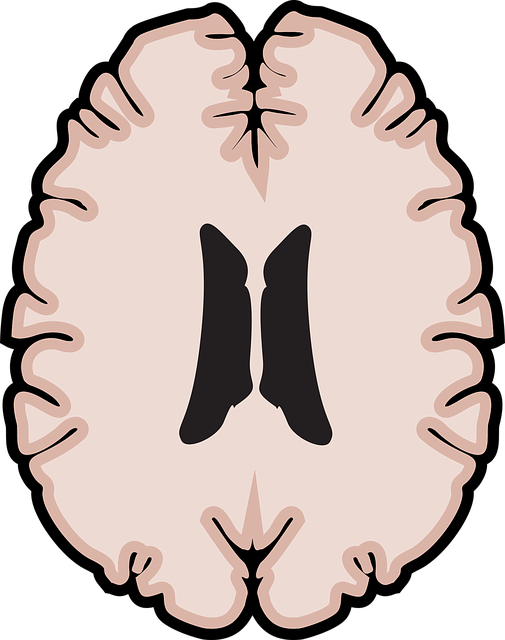At Englewood Parenting Skills Therapy (EPST), understanding mental health data is a foundational step for effective therapy. This involves cleaning and organizing various qualitative and quantitative sources, ensuring confidentiality and accuracy. The process includes verifying data integrity, handling missing values, identifying outliers, normalizing formats, and encoding categorical variables. EPST focuses on key areas like resilience building and self-esteem enhancement, gathering insights through structured sessions to uncover hidden patterns among parents' coping skill development. Data analysis reveals commonalities within therapy groups, effective strategies for navigating challenges, and boosting self-esteem. These findings tailor interventions, address community needs, and continuously enhance mental healthcare relevance and responsiveness.
Mental health data analysis is a powerful tool for understanding and improving patient outcomes. This article explores the process of analyzing mental health data, focusing on the unique context of Englewood Parenting Skills Therapy (EPST). We delve into the collection and preparation of EPST data, uncover patterns and trends, and discuss how interpretation leads to evidence-based treatment strategies. By understanding the data, healthcare providers can personalize care, enhance therapy outcomes, and ultimately, improve the well-being of patients.
- Understanding Mental Health Data: Collection and Preparation
- Analyzing Patterns and Trends in Englewood Parenting Skills Therapy
- Interpreting Results: Informing Treatment Strategies for Better Patient Outcomes
Understanding Mental Health Data: Collection and Preparation

Understanding Mental Health Data is a pivotal first step in any analysis process. Collectible data on mental health often includes various qualitative and quantitative measures, such as survey responses, therapy session notes, and clinical assessments. These sources provide insights into individuals’ experiences, behaviors, and emotional states. Preparation involves cleaning and organizing this data to ensure accuracy and consistency. It’s crucial to handle sensitive information with utmost care, especially when dealing with personal details from clients seeking support at Englewood Parenting Skills Therapy or similar services.
The process should include verifying the integrity of the data, addressing missing values, and identifying outliers. For instance, in a Mental Wellness Journaling Exercise Guidance program, therapists might collect daily entries from participants. Preparing this data involves normalizing formats, encoding categorical variables, and ensuring confidentiality to maintain trust and promote Positive Thinking among individuals engaging with mental health services.
Analyzing Patterns and Trends in Englewood Parenting Skills Therapy

Englewood Parenting Skills Therapy (EPST) offers a unique lens for analyzing mental health data by focusing on specific therapeutic areas like resilience building and self-esteem improvement. Through structured sessions, therapists gather insights into parents’ coping skills development, which can reveal hidden patterns and trends. By examining these patterns, researchers and practitioners gain valuable knowledge about what works best in different scenarios, enabling them to tailor interventions for optimal effectiveness.
Data analysis in EPST goes beyond individual cases, aiming to identify commonalities and divergences within the therapy group. This approach facilitates the discovery of effective strategies that enhance parents’ ability to navigate challenges, boost their self-esteem, and develop robust coping skills. Such insights are crucial for advancing evidence-based practices, ensuring that mental health services meet the unique needs of families in Englewood and beyond.
Interpreting Results: Informing Treatment Strategies for Better Patient Outcomes

When analyzing mental health data, interpreting results is a critical step that directly informs treatment strategies and, consequently, patient outcomes. This involves identifying patterns, trends, and correlations within the data that can shed light on individual needs and overall population mental health dynamics. For instance, in the context of Englewood Parenting Skills Therapy, data analysis might reveal specific challenges faced by parents in the community, such as high stress levels or cultural barriers to effective parenting practices. Such insights enable therapists to tailor interventions, ensuring they are not only culturally sensitive (a key aspect in Mental Healthcare Practice) but also address the most pressing issues.
For instance, a risk assessment for mental health professionals using this data could pinpoint areas where stress reduction methods might be particularly beneficial. By integrating these findings into treatment plans, practitioners at Englewood Parenting Skills Therapy can enhance their approach and ultimately improve patient outcomes. This data-driven perspective not only guides more effective therapy but also fosters continuous improvement in the overall mental healthcare system, ensuring services remain relevant and responsive to the evolving needs of the community.
Mental health data analysis is a powerful tool that can significantly enhance therapeutic outcomes, especially in programs like the Englewood Parenting Skills Therapy. By understanding and interpreting complex data, therapists can identify patterns and trends, leading to more effective treatment strategies. This article has explored the process of data collection and preparation, highlighted successful pattern recognition in Englewood Parenting Skills Therapy, and emphasized the critical role of data interpretation in tailoring treatments for optimal patient outcomes. Through these insights, mental health professionals can embrace data-driven approaches to improve care and better support their clients’ well-being.














